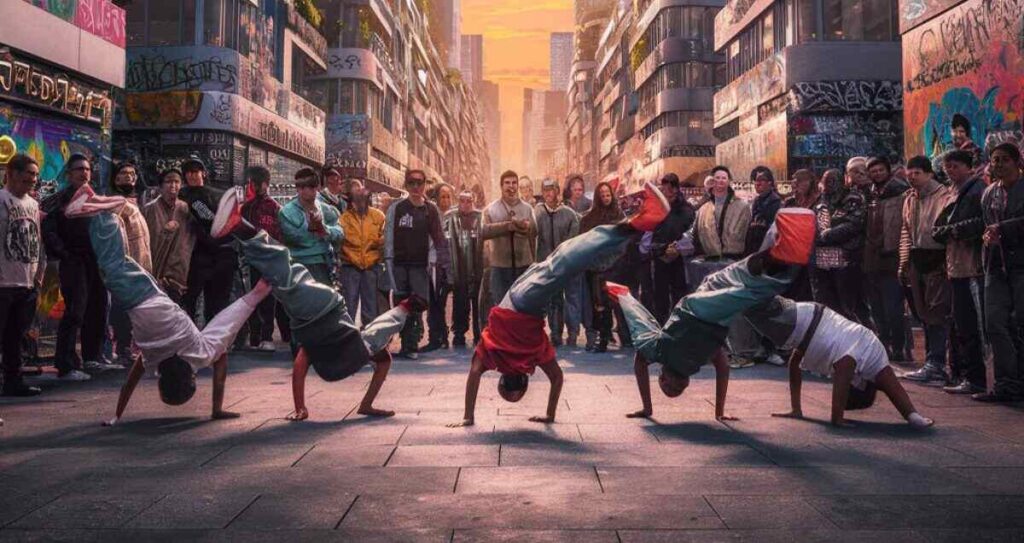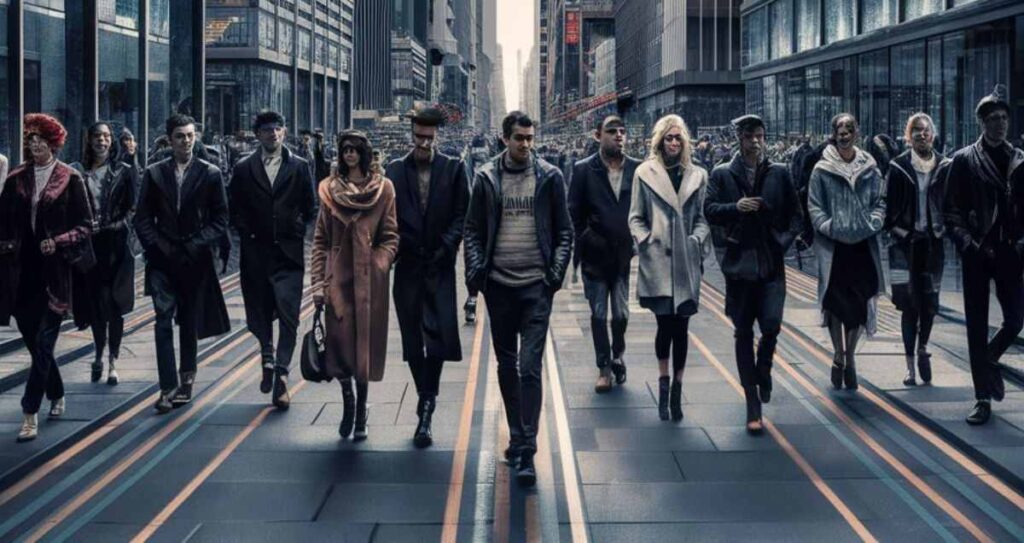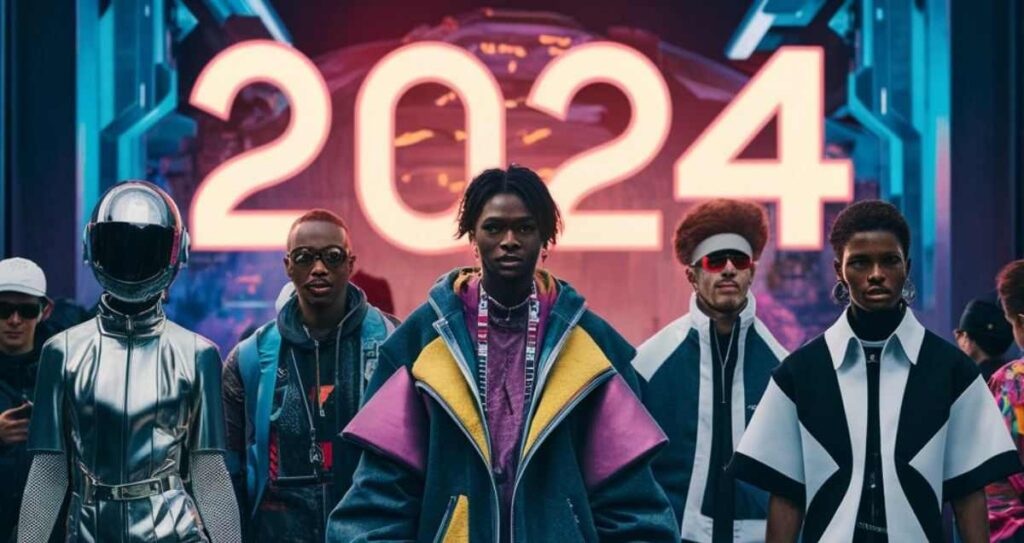Urban Style refers to a distinctive aesthetic influenced by city life, blending fashion, art, and culture. It emphasizes individuality, practicality, and bold designs.
Ready to master urban style? The bold blend of city vibes, creativity, and functionality that defines this ever-evolving cultural phenomenon.
Urban Style draws inspiration from city environments, merging elements of streetwear, hip-hop, and cultural diversity. It’s characterized by practical yet edgy designs that reflect personal expression. From graphic tees and sneakers to industrial-inspired interiors, urban style embraces creativity and innovation, making it a global trendsetter.
What is Urban Style?

At its core, Urban Style captures the essence of city living. It’s bold, versatile, and practical—shaped by the fast-paced, diverse, and ever-changing nature of urban environments. Whether in fashion, design, or lifestyle, it emphasizes personal expression, often blending functionality with a street-smart edge.
Key Characteristics of Urban Style
- Edginess: Incorporates bold patterns, sharp lines, and a rebellious spirit.
- Diversity: Mixes various cultural elements and subcultures, from hip-hop to high fashion.
- Practicality: Designed for comfort and movement, reflecting the fast pace of city life.
- Sustainability: Increasingly eco-conscious, with brands adopting sustainable practices to cater to urban consumers.
The History of Urban Style
Urban style has evolved over decades, influenced by cultural movements, technological advances, and global trends. Here’s a closer look at its journey:
The Birth of Urban Fashion
The roots of urban style can be traced back to the 1970s hip-hop scene in New York City. Pioneers like Afrika Bambaataa and Grandmaster Flash shaped the music and aesthetics of the genre. Baggy pants, oversized jackets, and sneakers became staples of the movement, reflecting both practicality and attitude.
The 1980s: Merging Subcultures
In the 1980s, urban fashion expanded its reach, influenced by graffiti art and breakdancing. Brands like Adidas and Puma gained popularity thanks to icons like Run-D.M.C., who famously endorsed shell-toe sneakers without laces. Urban style became synonymous with self-expression and authenticity.
The 1990s: Globalization of Urban Style
The 1990s saw urban style go mainstream. Designers like Tommy Hilfiger and Karl Kani collaborated with hip-hop artists, introducing elements of streetwear to high fashion. Baggy jeans, bucket hats, and graphic tees became global symbols of urban culture.
2000s to Today: Blending High Fashion and Streetwear
In the 21st century, urban style has blurred the lines between streetwear and luxury. Brands like Supreme, Off-White, and Balenciaga have redefined the landscape, making urban style a staple on fashion runways. Today, urban fashion continues to evolve, embracing sustainability, gender inclusivity, and tech-inspired designs.
Components of Urban Style

Urban style encompasses more than just clothing. It reflects an entire lifestyle influenced by various elements of city living. Here’s a breakdown:
Urban Fashion
Fashion remains the cornerstone of urban style, blending comfort, functionality, and bold aesthetics.
| Category | Key Features | Examples |
|---|---|---|
| Footwear | Sneakers, boots, and slip-ons | Nike Air Jordans, Timberlands, Yeezys |
| Outerwear | Parkas, bombers, and oversized jackets | The North Face puffer, leather jackets |
| Accessories | Statement pieces like caps, backpacks, and chains | Snapbacks, gold chains, crossbody bags |
| Tops & Bottoms | Graphic tees, hoodies, cargo pants, and joggers | Carhartt pants, Champion hoodies |
Urban Interior Design
Urban style extends into interior spaces, creating homes that reflect city vibes. Exposed brick walls, industrial lighting, and minimalist furniture are common. This design approach values functionality and embraces a mix of old and new.
Urban Art
Street art, graffiti, and murals are vital components of urban style. Artists like Banksy and Jean-Michel Basquiat have turned urban art into a global movement, blending creativity with social commentary.
Urban Style in Action: Case Studies
Case Study 1: The Rise of Sneakers in Urban Fashion
Sneakers have become a cornerstone of urban fashion. Once designed for sports, they now symbolize status and creativity. Brands like Nike collaborate with designers and celebrities to create limited-edition sneakers that fetch thousands of dollars on resale markets.
Quote: “Sneakers are the modern equivalent of a tailored suit—they’re an essential part of urban identity.” – Sneaker Culture Enthusiast.
Case Study 2: Urban Style Meets High Fashion
Virgil Abloh’s work with Off-White showcases how urban style and luxury fashion intersect. His designs combine streetwear elements like hoodies and oversized fits with high-end materials, creating pieces that resonate with both urban enthusiasts and fashion elites.
Tips for Mastering Urban Style
Want to incorporate urban style into your wardrobe or lifestyle? Here’s how:
- Mix High and Low: Pair luxury items with affordable streetwear for a balanced look.
- Prioritize Comfort: Urban style is all about practicality, so focus on pieces that let you move freely.
- Embrace Layers: Use layers to add depth and personality to your outfit.
- Experiment with Accessories: Caps, backpacks, and statement jewelry can elevate any look.
Urban Style Trends in 2024 and Beyond

Urban style continues to evolve, embracing new influences and technologies. Here are some trends to watch:
- Sustainable Urban Wear: Eco-friendly materials and ethical practices are becoming non-negotiable.
- Tech-Integrated Fashion: Smart jackets and shoes with built-in tech features are gaining popularity.
- Inclusivity: Gender-neutral and size-inclusive designs are redefining urban fashion.
- Cultural Fusion: Expect to see more blending of global cultures, from African prints to Japanese streetwear influences.
Why Urban Style Matters Today
Urban style isn’t just about aesthetics; it’s a reflection of culture, identity, and innovation. It empowers individuals to express themselves, challenges societal norms, and inspires creativity across industries. In many ways, urban style is the language of the modern city.
Quote: “Urban style is more than fashion; it’s the rhythm of the streets, the art on the walls, and the pulse of a community.” – Fashion Historian.
Conclusion
Urban style has come a long way from its roots in the streets of New York to its place on global fashion runways. It’s a testament to the creativity and resilience of city culture, blending practicality with bold, expressive designs. Whether you’re a sneakerhead, an art enthusiast, or a minimalist at heart, urban style has something to offer.
So, the next time you’re rocking a hoodie or admiring street art, remember—you’re embracing a piece of urban history. Urban Style isn’t just a trend; it’s a movement that continues to shape how we dress, live, and express ourselves.
David Mark is a fashion aficionado and writer for Fashion Burst, where he delivers insightful content on the latest trends and style tips. With a keen eye for detail and a passion for all things fashion, David provides readers with expert advice and trend-setting ideas. His engaging posts help you stay ahead of the curve and refine your personal style with confidence and flair.
